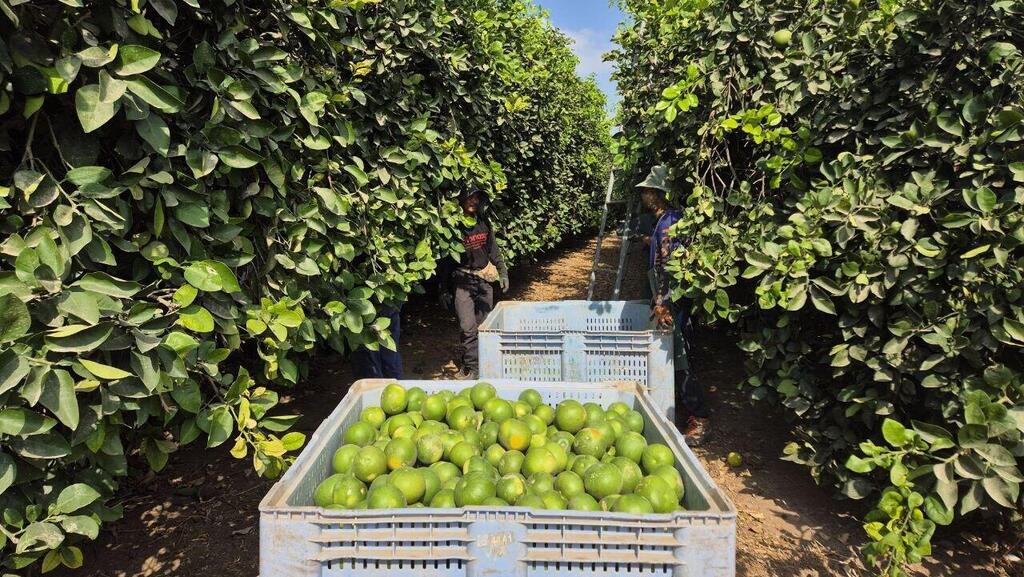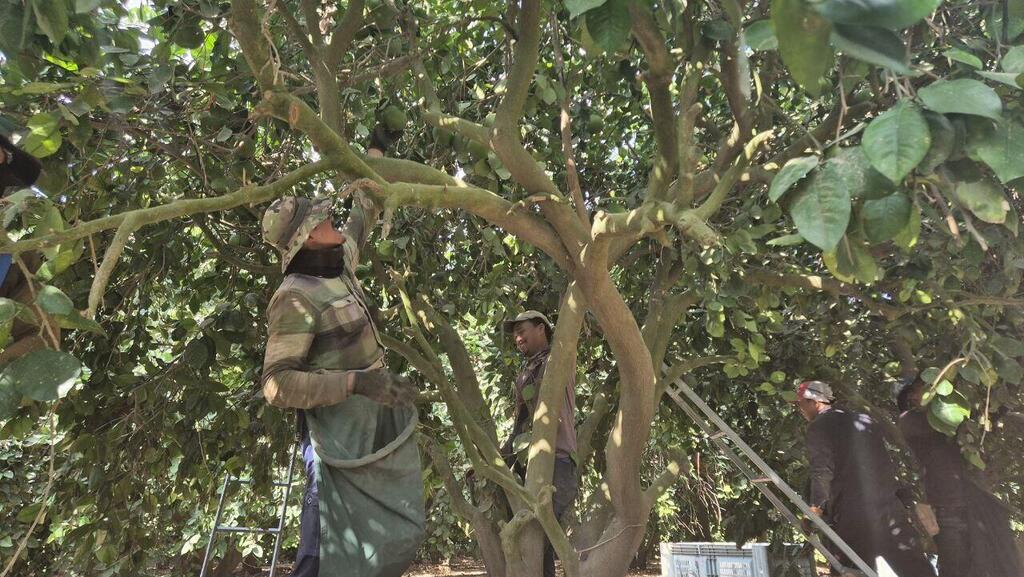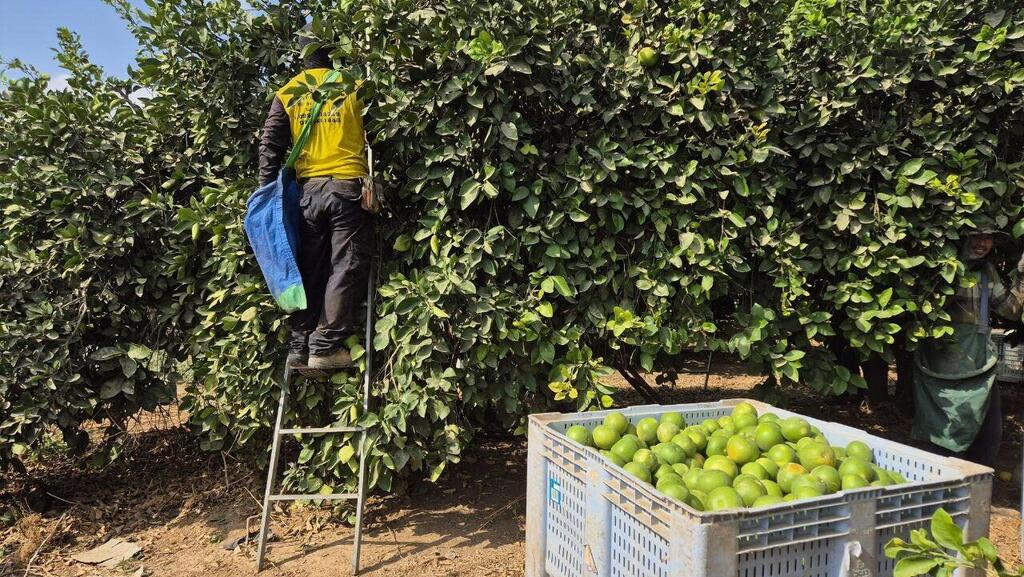Getting your Trinity Audio player ready...
While most of Kibbutz Be'eri’s residents are busy moving into temporary homes in Kibbutz Hatzerim near Be'er Sheva, the agricultural crops continue to thrive with a bountiful yield in the southern community. Celebrations took place on Wednesday as the pomelo harvest began in the orchards near the kibbutz, almost a year after the October 7 massacre that scarred the veteran kibbutz.
Dozens of workers and volunteers arrived at the fields to harvest many ripe pomelos, which will soon make their way to markets across Israel. The harvest will continue for several weeks, after which it will be the turn of Be'eri's clementines and oranges. Be'eri's avocado crops are also nearing ripeness and will be harvested in a few months.
"We estimate that we’ll reach a total of 240 tons of pomelos picked from Be'eri’s three plots. We started harvesting early this year at the request of the company that buys our pomelos. In the coming days, more and more volunteers will arrive to help with the harvest," said Motti Barak, Kibbutz Be'eri’s head of agriculture.
Among those working in Be'eri’s agriculture and leading the harvest effort is Yarden Zemach, a resident of the kibbutz, whose brother Shachar Zemach, a member of the kibbutz’s local alert squad, was killed defending the community.
Currently, Kibbutz Be'eri is starting a long recovery process, which will likely take years. Some 102 residents were murdered during Hamas’ attack. As of now, 10 residents are still being held captive in Gaza, seven of whom were killed in captivity and whose bodies are being held by Hamas terrorists.
Most families from the kibbutz currently are living in Hatzerim, though a few dozen residents, mainly young adults and older individuals without children, have already returned to the kibbutz and are participating in the rebuilding efforts or working at the Be'eri printing press.
The agricultural sector has resumed full activity despite the challenges. Meanwhile, the demolition of homes damaged in the terror attack continues and new homes will eventually be built in their place at the kibbutz.





